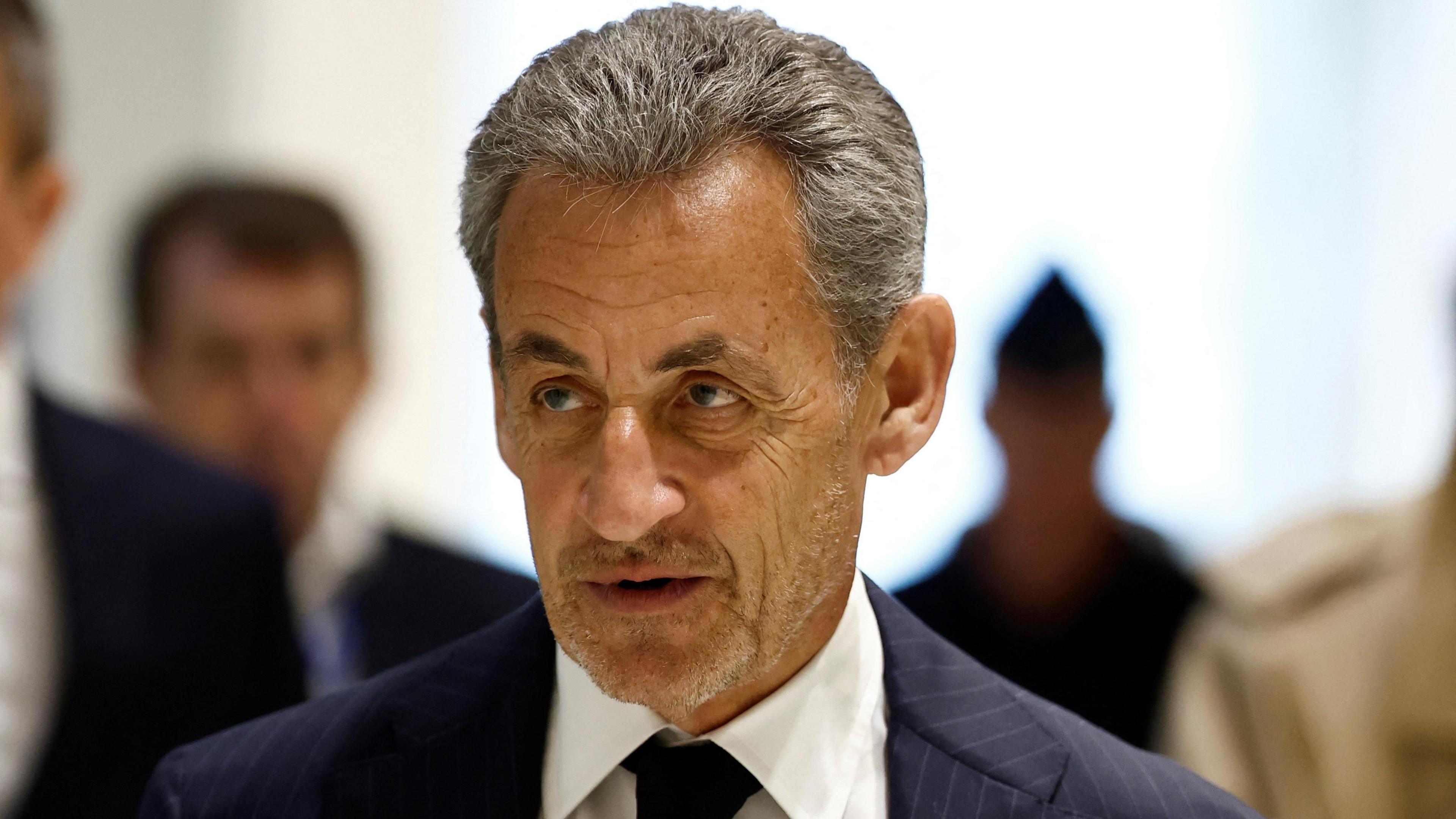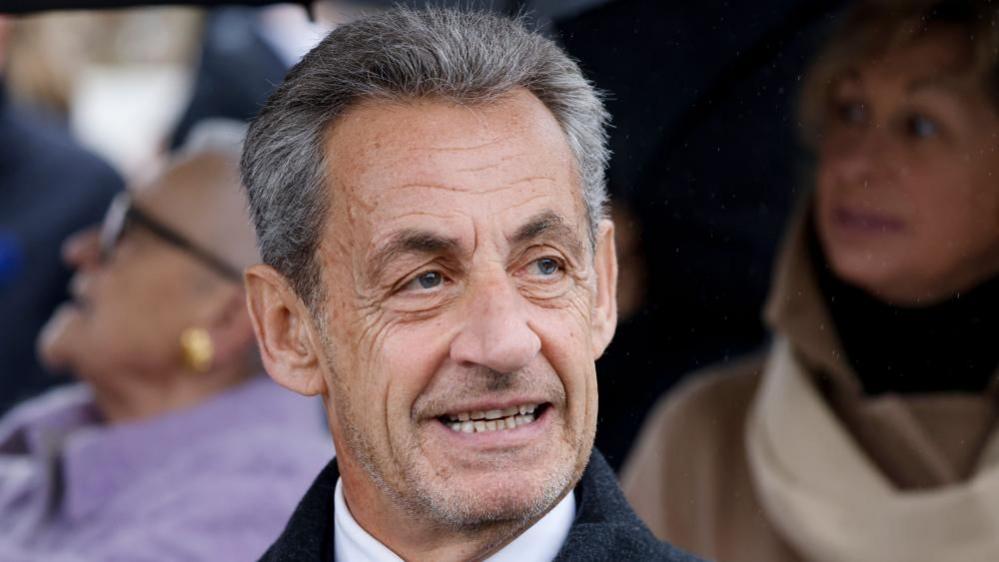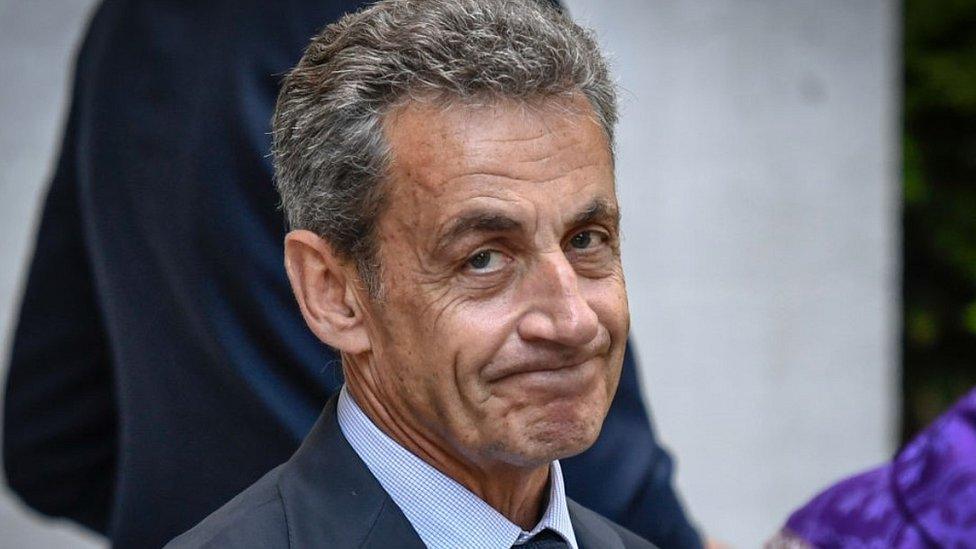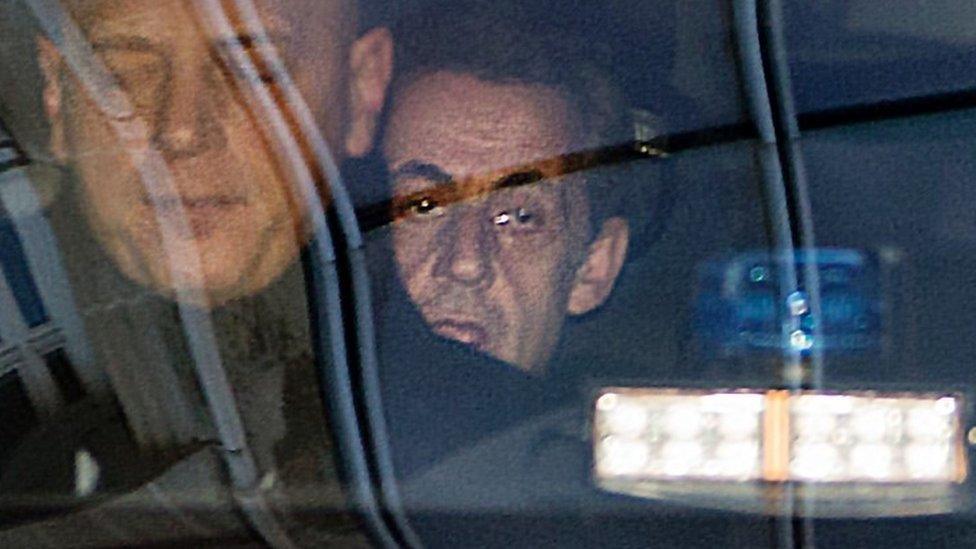Nicolas Sarkozy goes on trial over alleged Gaddafi election funding

Sarkozy, now 69, was the president of France from 2007 to 2012
- Published
Former French President Nicolas Sarkozy has gone on trial in Paris, accused of taking millions of euros of illicit funds from the late Libyan leader Col Muammar Gaddafi to finance his 2007 election campaign.
In exchange, the prosecution alleges Sarkozy promised to help Gaddafi combat his reputation as a pariah with Western countries.
Sarkozy, 69, was the president of France from 2007 to 2012.
He has always denied the charges, saying they were brought against him by people with motivations to bring him down.
The investigation was opened in 2013, two years after Saif al-Islam, son of the then-Libyan leader, first accused Sarkozy of taking millions of his father's money for campaign funding.
The following year, Lebanese businessman Ziad Takieddine - who for a long time acted as a middleman between France and the Middle East - said he had written proof that Sarkozy's campaign bid was "abundantly" financed by Tripoli, and that the €50m (£43m) worth of payments continued after he became president.
Twelve other people - accused of devising the pact with Gaddafi - are standing trial along Sarkozy. They all deny the charges.
Sarkozy's wife, Italian-born former supermodel and singer Carla Bruni-Sarkozy, was charged last year with hiding evidence linked to the Gaddafi case and associating with wrongdoers to commit fraud, both of which she denies.
Since losing his re-election bid in 2012, Sarkozy has been targeted by several criminal investigations.
He also appealed against a February 2024 ruling which found him guilty of overspending on his 2012 re-election campaign, then hiring a PR firm to cover it up. He was handed a one-year sentence, of which six months were suspended.
In 2021, he was found guilty of trying to bribe a judge in 2014 and became the first former French president to get a custodial sentence. In December, the Paris appeals court ruled that he could serve his time at home wearing a tag instead of going to jail.
Sarkozy was not wearing the tag as he arrived in court in Paris on Monday morning.
However, that is only because the details of that sentence have yet to be worked out.
It is likely that in the course of this three-month trial over the so-called Libya connection, the former president will appear wearing the device.
The trial is set to continue until 10 April. If found guilty, Sarkozy faces up to 10 years in prison.
Related topics
- Published18 December 2024

- Published8 January

- Published29 March 2018
